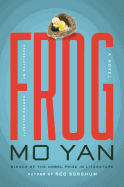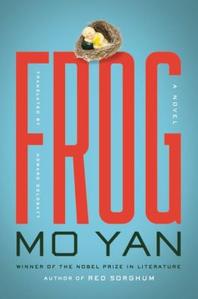

Narrator Wan Zu ("Foot"), nicknamed Tadpole, whose voluminous letters to his Japanese sensei comprise the body of the novel, is gathering material about his indomitable aunt, Gugu, who was the first professional midwife in Northeast Gaomi Township, the locale of many Mo Yan novels (such as Live and Death Are Wearing Me Out and POW!). Employing new Western medicine, Gugu is the best there is. She becomes director of the health center's obstetrics department, and delivers more than 10,000 babies. She's also the aggressive enforcer of the Party's one-child policy and is responsible for more than 2,000 involuntary abortions. She stands at the center of the novel, and carries it largely unsympathetically. Her victims are the most likable women in the story. When Tadpole's lovely wife refuses to abort her second pregnancy, Gugu swears to uphold the Party policy. That Mo Yan manages to make her ultimately self-aware and forgivable is a measure of his constant compassion toward mistake-makers.
The plot of Frog is more like a slow-motion narrative explosion than a single story, moving an entire district of characters through decades of change and reversal--the attractive grow ugly, the tricksters succeed, the proud are humbled, the rich and poor trade places and lovers marry other partners. It's gleefully crammed full of reversals, surprises and unexpected developments, family betrayals and escape tunnels, intercepted love letters, frog attacks and stolen sperm. Mo Yan stages a magnificent madcap chase sequence in a river clogged with rafts full of peaches being rushed to market, with a pregnant woman attempting to escape speedboat pursuit by abortion doctors. The disparate threads all converge at a bullfrog farm that dominates the second half of the novel, where surrogate mothers provide another way to beat the one-child rule.
Frog is a big, challenging novel with a dizzying number of characters with similar names, but the narrative thrills far outweigh the confusion. The final section of the book is the script of the play that Tadpole has been trying to write throughout the story, in which Gugu finally confronts her own guilt for following Party directives, a theatrical conclusion to Mo Yan's portrait of a brilliant doctor who makes some horrible politics-driven choices while dedicating her life to her community. --Nick DiMartino, Nick's Picks, University Book Store, Seattle, Wash.
Shelf Talker: Nobel Prize–winner Mo Yan takes on China's one-child policy in a big explosion of a novel tracking an entire district through the upheavals caused by the controversial policy.

